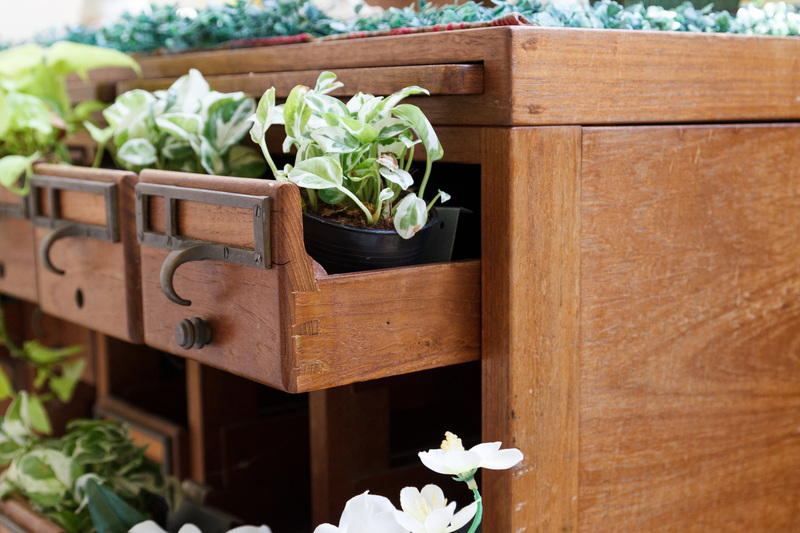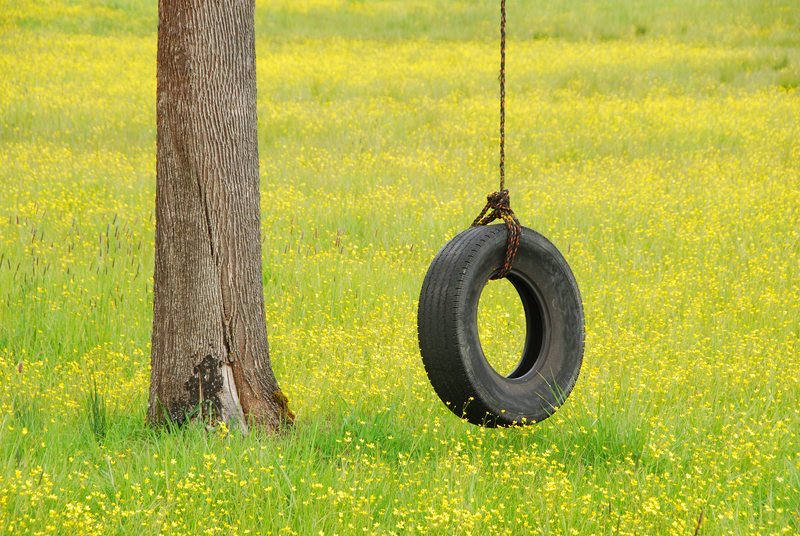Tranquility Through Tidy Spaces: De-cluttering's Stress Benefits
Have you ever noticed how a cluttered space can make your mind feel equally chaotic? The connection between our physical environment and mental clarity is undeniable. In today's fast-paced world, the pursuit of calm often starts with our immediate surroundings. This comprehensive article explores how decluttering can foster tranquility, reduce stress, and lead to an improved sense of well-being. Discover evidence-backed reasons to tidy up, practical strategies, and tips for maintaining peace at home and work.

Understanding the Link Between Clutter and Stress
How Clutter Impacts the Mind
Clutter isn't just a visual nuisance--it has profound psychological effects. Multiple studies have shown that disorganized and messy environments can increase cortisol levels, the body's primary stress hormone. When surrounded by clutter, our brains can become overwhelmed by excessive stimuli, making it harder to focus, relax, or think creatively.
- Visual Overload: Constant reminders of disorganization bombard our senses and demand attention.
- Decision Fatigue: Clutter represents unfinished tasks, forcing our brains to make countless micro-decisions.
- Increased Anxiety: A messy space often leads to feeling out of control. This loss of control increases stress and anxiety levels.
Scientific Evidence: Clutter and Psychological Health
A landmark study from UCLA's Center on Everyday Lives and Families discovered that physical clutter in the home contributed directly to increased stress, particularly among women. Similarly, research published in the Personality and Social Psychology Bulletin noted that individuals who described their homes as "cluttered" or "unfinished" experienced more fatigue and higher depression scores throughout the day.
The Benefits of De-cluttering for Serenity
Clear Environment, Clear Mind
De-cluttering isn't just about cleaning--it's a deliberate act that nurtures tranquility. Removing unnecessary items from your life can have astonishingly positive effects on your mood and mental state:
- Enhanced Focus: A tidy space minimizes distractions, allowing you to work or relax more efficiently.
- Boosted Productivity: With everything in its place, you spend less time searching for misplaced items. This saves time and reduces frustration.
- Decreased Anxiety: Orderly spaces create a sense of control, helping you manage everyday stress more effectively.
- Improved Quality of Sleep: The National Sleep Foundation highlights how a calm, clutter-free bedroom can help you fall asleep faster and enjoy deeper rest.
- Uplifted Mood: The satisfaction of seeing a neat room or desk can provide an instant dopamine boost--a natural happiness enhancer.
How De-cluttering Cultivates Mindfulness
Sorting through your belongings requires presence and intentionality. Each item you touch and assess offers a chance to reflect on its value and purpose in your life. This process encourages mindfulness, fostering a deeper understanding of your needs and priorities. For many, the physical act of tidying up provides a tangible way to process emotions and let go of attachments that may be tied to negative experiences or stressors.
Practical Strategies for Achieving Tidy Spaces
1. Embrace the "Less is More" Philosophy
Begin your de-cluttering journey with a mindset shift: clutter accumulates when we value quantity over quality. Prioritize items that serve a clear function or spark joy (as urged by Marie Kondo's famous method). If you haven't used something in months--or even years--it may be time to part ways.
2. Approach One Space at a Time
- Start small. Tackle a drawer, shelf, or corner first--don't overwhelm yourself by trying to organize an entire room in one go.
- Set a timer, such as 15 or 30 minutes, to give your session structure.
- Sort items into categories: keep, donate, recycle, or toss. Be honest during decision-making, aiming for simplicity and efficiency.
- Praise your progress after each mini-session. Small victories compound into big changes!
3. Organize with Purpose
Once you've pared down your belongings, invest in proper storage solutions. Use labeled bins, baskets, or shelves to keep essentials visible and accessible. Remember, organization is about assigning "homes" for everything you decide to keep.
4. Maintain Consistency
- Make tidying part of your daily routine. Spend a few minutes at the end of each day resetting your spaces.
- Establish family or household guidelines--such as a no-shoes-indoors rule, or clearing kitchen counters after every meal--to maintain tidy environments.
- Seasonally reassess your items. As your needs and lifestyle change, so will the necessity of certain belongings.
Expert Insights: The Psychological Rewards of a Tidy Space
How Decluttering Programs Relieve Stress
Professional organizers and mental health experts alike advocate for decluttering as an anxiety-reducing activity. Why? Because the process offers several psychological "rewards":
- Immediate Satisfaction: Seeing a space go from chaotic to calm delivers instant gratification.
- Control and Empowerment: Taking charge of your environment translates to feeling more in charge of your life.
- Enhanced Self-Esteem: Completing an organizing project improves confidence.
- Therapeutic Physical Activity: The act of cleaning and moving items around can be meditative and grounding.
Anita Morrison, a certified professional organizer, notes: "A clutter-free space is not simply about aesthetics--it's about peace of mind. Our homes should support us, not stress us out."
The Neurological Benefits of Organization
Neurologists have found that orderly environments support our executive functioning skills--the mental abilities that allow us to plan, focus, and remember information. A tidy workspace, for example, improves concentration and decreases mental fatigue. The reduction in visual distraction alone can enhance problem solving and creativity, further reducing stress levels.
De-cluttering Beyond the Home: Workspaces and Digital Life
Office Organization for Reduced Stress
Your workspace is just as significant as your living space when it comes to stress management. Messy desks, overflowing inboxes, and stacks of paperwork can fuel tension and slow productivity. Adopting decluttering techniques at work may include:
- Daily Desk Clearing: At the end of each workday, file away paperwork and clear non-essential items.
- Minimize Digital Clutter: Regularly unsubscribe from unnecessary email lists and organize files into clearly labeled folders.
- Use Task Lists: Write down daily objectives to keep mental clutter at bay.
Digital Decluttering for Peace of Mind
Don't underestimate the impact of digital disorganization. Overflowing inboxes, desktop icons, and unorganized files can be just as distressing as physical mess. Digital tidying offers:
- Clarity: Easy-to-find files reduce frustration and save time.
- Better Focus: Fewer notifications minimize distractions during work or relaxation.
- Mental Breathing Room: A well-organized device creates the digital equivalent of a calm workspace.
Common Misconceptions about Decluttering
- "Decluttering is just cleaning." While cleanliness matters, decluttering is about intentional selection and organization of your possessions.
- "It's time-consuming and overwhelming." By taking small steps and focusing on one area at a time, the process becomes manageable and sustainable.
- "I need to get rid of everything." The goal is to keep only what enhances your life or serves a purpose. Personalization is key; minimalism looks different for everyone.
Tips for Maintaining Tranquil, Clutter-Free Spaces Long-Term
Make It a Lifestyle, Not a Chore
The most effective way to sustain tranquil surroundings is to weave habits of tidiness into your daily routine. Consider these ongoing strategies:
- Before buying something new, ask yourself if it's essential or genuinely joyful.
- Apply the "one in, one out" rule--when you acquire an item, donate or discard another.
- Regularly set aside time to sort through spaces that tend to accumulate clutter, such as the entryway, closets, or your workspace.
- Involve household members in the process, fostering a shared sense of responsibility and accomplishment.

Decluttering for Emotional Well-being
As humans, we often attach meaning to our belongings. However, holding onto items that no longer serve us can weigh heavily on our hearts and minds. Decluttering offers not just material relief, but emotional liberation as well:
- Letting go of gifts or inherited items can free you from guilt and external expectations.
- Releasing objects tied to past relationships or events helps move forward with a lighter spirit.
- Donating items brings a sense of purpose, knowing your unneeded goods can benefit others.
Decluttering as Self-Care
Consider decluttering part of your self-care toolkit. Just as you'd dedicate time to exercise or meditation, investing in your space's harmony enhances your overall well-being. Treat it as an act of kindness--toward yourself and anyone you share space with.
Conclusion: Embrace Serenity Through Simplicity
The pursuit of tranquility begins with your environment. By consciously organizing and curating your home, workspace, and digital world, you pave the way for lower stress, improved focus, and everyday joy.
Remember, decluttering is not a one-time event--it's an ongoing practice that reflects and supports your emotional health. Start with one drawer or shelf, celebrate your progress, and enjoy the calm that follows. Transform your surroundings, transform your stress!
Ready to Experience De-cluttering's Stress Benefits?
Take the first step today! Share your journey, inspire others, and unlock the peace that tidy spaces can bring. For more tips on stress management and home organization, explore our related articles and join the conversation below.